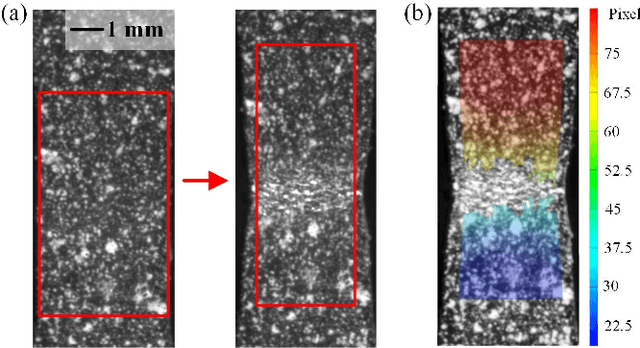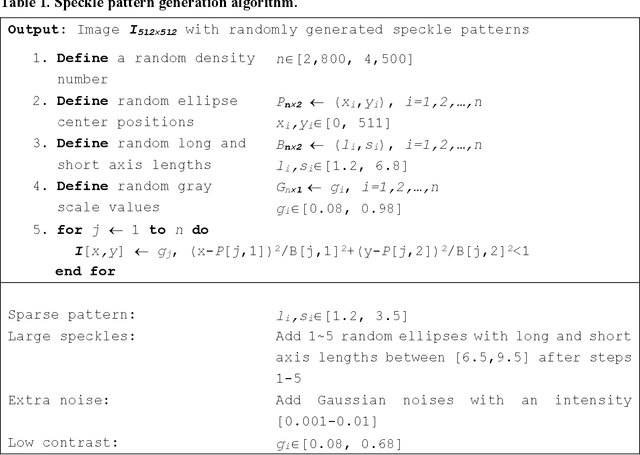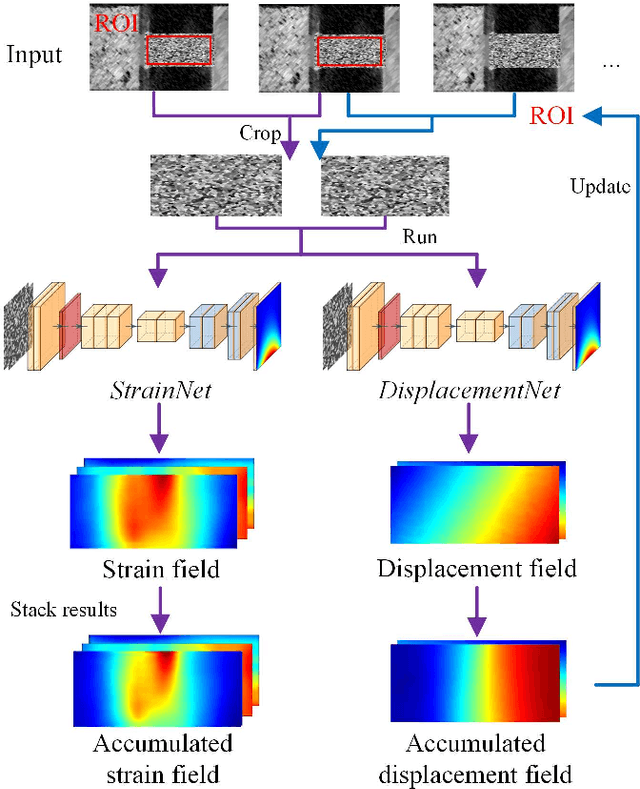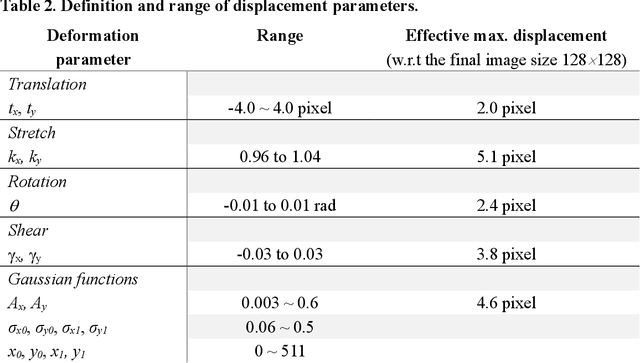Danielle Zeng
Deep DIC: Deep Learning-Based Digital Image Correlation for End-to-End Displacement and Strain Measurement
Oct 26, 2021



Abstract:Digital image correlation (DIC) has become an industry standard to retrieve accurate displacement and strain measurement in tensile testing and other material characterization. Though traditional DIC offers a high precision estimation of deformation for general tensile testing cases, the prediction becomes unstable at large deformation or when the speckle patterns start to tear. In addition, traditional DIC requires a long computation time and often produces a low spatial resolution output affected by filtering and speckle pattern quality. To address these challenges, we propose a new deep learning-based DIC approach -- Deep DIC, in which two convolutional neural networks, DisplacementNet and StrainNet, are designed to work together for end-to-end prediction of displacements and strains. DisplacementNet predicts the displacement field and adaptively tracks the change of a region of interest. StrainNet predicts the strain field directly from the image input without relying on the displacement prediction, which significantly improves the strain prediction accuracy. A new dataset generation method is proposed to synthesize a realistic and comprehensive dataset including artificial speckle patterns, randomly generated displacement and strain fields, and deformed images based on the given deformation. Proposed Deep DIC is trained purely on a synthetic dataset, but designed to perform both on simulated and experimental data. Its performance is systematically evaluated and compared with commercial DIC software. Deep DIC gives highly consistent and comparable predictions of displacement and strain with those obtained from commercial DIC software, while it outperforms commercial software with very robust strain prediction even with large and localized deformation and varied pattern qualities.
An Artificial-intelligence/Statistics Solution to Quantify Material Distortion for Thermal Compensation in Additive Manufacturing
May 14, 2020



Abstract:In this paper, we introduce a probabilistic statistics solution or artificial intelligence (AI) approach to identify and quantify permanent (non-zero strain) continuum/material deformation only based on the scanned material data in the spatial configuration and the shape of the initial design configuration or the material configuration. The challenge of this problem is that we only know the scanned material data in the spatial configuration and the shape of the design configuration of three-dimensional (3D) printed products, whereas for a specific scanned material point we do not know its corresponding material coordinates in the initial or designed referential configuration, provided that we do not know the detailed information on actual physical deformation process. Different from physics-based modeling, the method developed here is a data-driven artificial intelligence method, which solves the problem with incomplete deformation data or with missing information of actual physical deformation process. We coined the method is an AI-based material deformation finding algorithm. This method has practical significance and important applications in finding and designing thermal compensation configuration of a 3D printed product in additive manufacturing, which is at the heart of the cutting edge 3D printing technology. In this paper, we demonstrate that the proposed AI continuum/material deformation finding approach can accurately find permanent thermal deformation configuration for a complex 3D printed structure component, and hence to identify the thermal compensation design configuration in order to minimizing the impact of temperature fluctuations on 3D printed structure components that are sensitive to changes of temperature.
 Add to Chrome
Add to Chrome Add to Firefox
Add to Firefox Add to Edge
Add to Edge